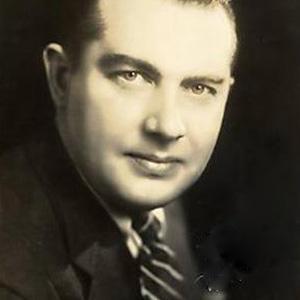
Whispering Jack Smith
Legend has it that politely understated baritone Whispering Jack Smith developed his unique and intimate singing style as a result of bronchial injuries sustained during a gas attack on the battlefield in France during World War I. While he seems to have indeed survived such a harrowing experience, it is also known that Smith was capable of projecting his voice every bit as powerfully as any of his stage-performing peers. It was the introduction of the microphone in 1925 that enabled Smith to create the marvelous soft-spoken persona so radically different from his many loud-mouthed vaudeville contemporaries. \r \r Beginning in 1925, Smith (not to be confused with actor and vibrant tenor pop vocalist Jack Smith, born in 1918) generated a steady stream of Victor and HMV recordings in the U.S. and in London, where he performed periodically in stage revues. When he wasn't accompanying himself at the piano, Smith relied upon someone else to tickle the keys or strum a guitar. His 1926 recording of "When the Red, Red Robin Comes Bob, Bob, Bobbin' Along" featured special guest whistler Carson Robison. Smith also sang with various society dance orchestras. Smith's biggest hits were "Gimme a Little Kiss, Will Ya, Huh?" and "Me and My Shadow." He made his London debut in the Midnight Follies at the Hotel Metropole in 1926 and appeared in Blue Skies at the Vaudeville theater in New York the following year. Smith was back in England for the opening of Will-o'-the-Whispers at the Shaftesbury Theatre on April 4, 1928, and performed in front of enthusiastically receptive audiences in Berlin during August of that year. \r \r In 1930 Smith went to Hollywood, where he appeared in one of the first talking motion pictures, Cheer Up and Smile, during which he sang "You May Not Like It - But It's a Great Idea." Whispering Jack Smith continued to perform throughout the 1930s, although his popularity gradually waned as styles changed. He staged a modest comeback in 1940 and made a handful of sentimental recordings, but quickly lapsed back into a rather early retirement. Out of place in an increasingly rude and clamorous world, he passed away in New York during May of 1951.
